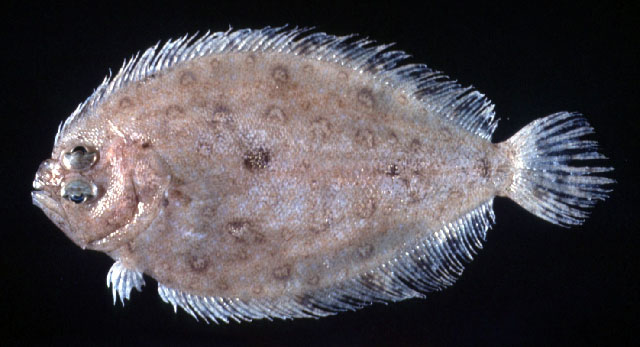| Paralichthyidae (Large-tooth flounders) |
| 37.5 cm TL (male/unsexed); max.weight: 760.0 g |
|
demersal; marine; depth range 7 - 200 m |
| Indian Ocean: throughout the region including the Red Sea and Persian Gulf; south to Algoa Bay in South Africa (Ref. 4417). Western Pacific: Taiwan southward to New Guinea and extending to the northeastern coast of Australia. |
|
Dorsal spines (total): 0-0; Dorsal soft rays (total): 67-74; Anal spines: 0-0; Anal soft rays: 52-66. Eyed side with dark rings arranged in about 5 longitudinal rows; dark blotch at junction of straight and curved parts of lateral line and 2 smaller ones on the lateral line at posterior part of body and anterior end of caudal peduncle; small dark spots and elongate markings on median fins; pectoral fins with 10-12 rays on eyed side, 10-11 rays on blind side (Ref. 4417). |
| Found on clay, sand and mud bottoms of the continental shelf. Feeds on benthic animals (Ref. 5213). Mainly sold fresh. |
|
Least Concern (LC); Date assessed: 10 March 2021 Ref. (130435)
|
| harmless |
Source and more info: www.fishbase.org. For personal, classroom, and other internal use only. Not for publication.

